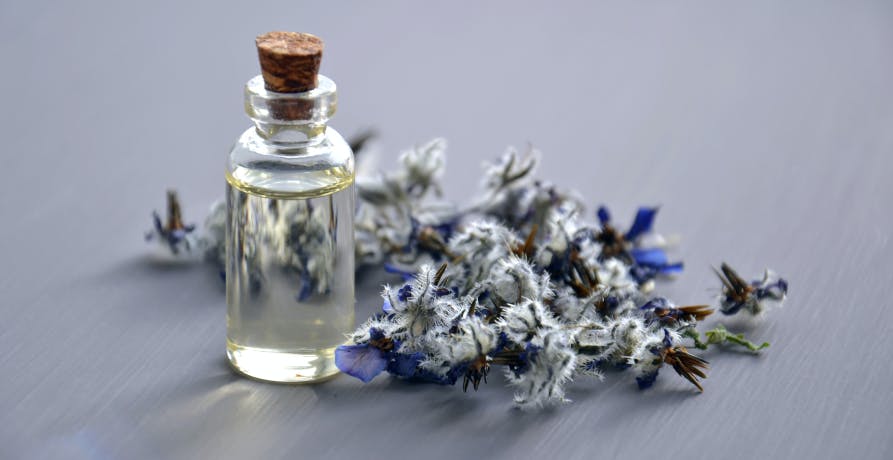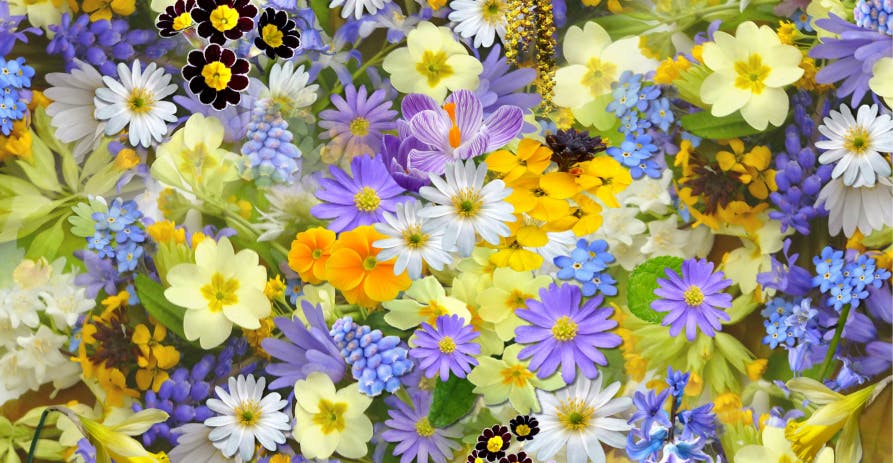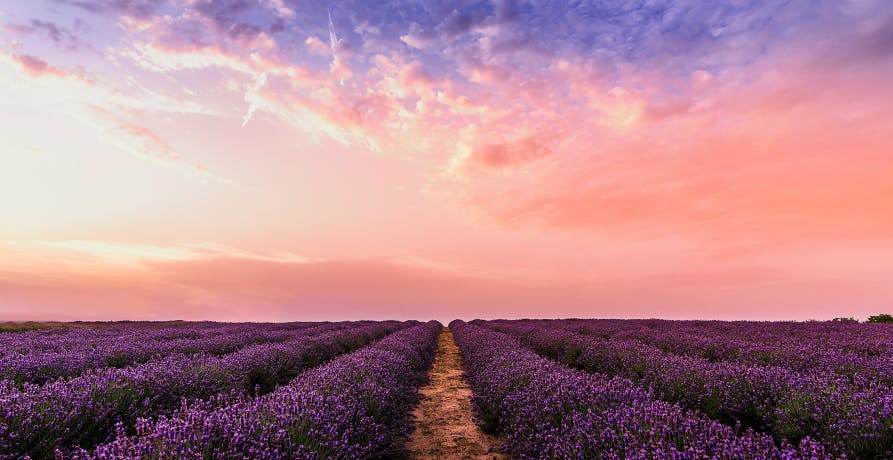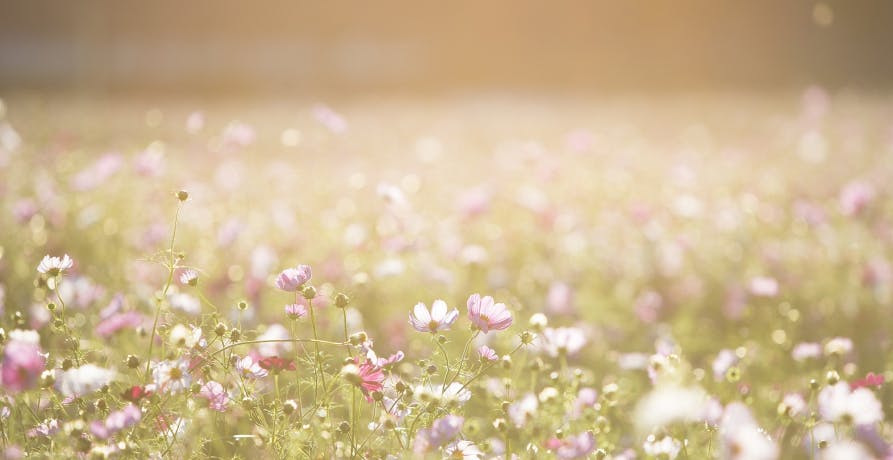ESG / CSR
Industries
Perfume: Is the Industry Threatened by Climate Change?



Climate change is impacting more and more sectors these days: such as cosmetic companies, insurance policies, and the infamous electricity shortage Europe is known to be experiencing this winter. You might not think that global warming would have an impact on smaller, less vital industries like the perfume industry – but it does.
How will climate change continue to impact the future of the perfume industry?
In this article, we'll explore what the perfume industry is, how it is impacted by climate change, and how we can work to save the perfume industry in the midst of climate change.
What is the perfume industry?
The perfume industry, sometimes better known as the fragrance industry, offers a wide-variety of products that incorporate specific scents – such as with perfume, cologne, lotion, and even aftershave.
💡 The perfume industry expands beyond fragrance in a perfume bottle, but also several other products in order to appeal to the customers who have fallen in love with the scent.
Some companies to associate this marketing tactic with include Bath & Body Works or The Body Shop – both of which often provide their fragrances in the form of perfume, fine fragrance mists, body cream, lotion, hand sanitizer, and even as bath or shower gel.

How successful is the perfume industry?
The perfume industry has been very successful – with a revenue of over $58 billion USD in 2023, expected to continuing growing and hit nearly $70 billion dollars worth of revenue by 2028.
Maybe you think because you paid a pretty penny for your bottle of Channel N°5, that it also costs a lot to make – but this couldn’t be farther from the case.
💡 In fact, the cost of manufacturing the scented liquid that goes into your perfume bottle is inexpensive – but the actual final product of the perfume can be sold for much more, making any company in the perfume industry a relatively lucrative business.
However, on the other hand – it takes excessive marketing in order to get the word out about said perfume and encourage people to buy it.

Ironically, during and following the Covid-19 pandemic – the perfume industry has skyrocketed to new lengths of success. For example, a large perfume company InterParfums, which sells perfume to over 120 countries worldwide – has seen a 23% increase in sales throughout 2019, and a whopping 50% increase in sales since 2019 (or, pre-pandemic). In 2021 alone, this global perfume company made a whopping $880 million dollars in revenue – and the numbers keep going up.
Why has the perfume industry seen so much success during Covid, if so many people have altered their daily lives to stay home more or work remotely?
Since the pandemic, consumers have grown more interested in health and wellness products – most likely as an effort to care for their mental health amidst the stressful times that Covid-19 brought about. Perfume has been included in this category, with global sales for perfume rising 6% in 2021 in comparison to pre-pandemic in 2019. The U.S. market alone saw an almost 50% increase in fragrance interest, and the perfume market wasn’t the only area in the health and wellness sector to find immense success – the cosmetic industry also saw a wild increase in sales during and after the pandemic.
There are a few reasons for this drastic increase in sales. One, there was a lot of pent-up consumer energy: where people had saved a bunch of money during the thick of the Covid-19 pandemic – essentially, people had a, “pocket of cash burning a hole in their pockets” and were ready to spend money on something to use for socialization again.
On the other hand, some people may have also grown interested in buying a bottle of perfume in the midst of social distancing as an attempt to feel luxurious. In comparison to other “self-care” splurges, many of which weren’t available during quarantine such as a massage or trip to the spa – perfume is a relatively affordable, luxurious purchase. It’s easy to fill up the bath, burn a candle, and put on a spritz of perfume to recreate the aura of being at a spa. Perfume was able to serve as a type of escapism to solitude and opulence during a difficult time.
The pandemic clearly did a lot of good for the perfume industry, but what about climate change?

Why is the perfume industry threatened by climate change?
Isolation and the desire for self-care has increased the demand of the perfume industry, but it’s a slight problem if these perfume companies don’t have the resources to produce their perfume in the first place – and that’s where climate change becomes a potential threat to the perfume industry.
Climate change has spurred natural disasters and continuous droughts, drying up massive bodies of water like the Great Salt Lake or leaving places like Southern California continuously susceptible to wildfires. These abnormal weather conditions don’t make for the best environment for the flowers needed to manufacture perfume to grow, let alone survive.
For instance, a small Southern French town, Grasse, provides a lot of the flowers used for the production of popular perfumes like Chanel or Dior. Some of the flowers sold from Grasse, such as jasmine, sell for even more than gold – revealing the value of regions like these, threatened by climate change, to the perfume industry.
💡 Turbulent weather is proving to be a problem for these regions that perfume companies rely on, as extreme droughts have reduced the flower harvests by 40% last year.
The answer may seem simple, to water the flowers more often in the midst of extreme weather and dry heat – but given water is also a finite resource, the French government has limited how much water both residents and farmers are entitled to – making it difficult to compensate for the extreme heat. Climate change remains the issue in every facet of this problem posing a threat to the perfume industry.
It isn’t just small cities in the South of France that face this issue, but the agricultural sector as a whole, which is threatened by climate change – directly threatens the perfume industry, as well. Perfume companies are now faced with the difficult question and challenge of how to source the ingredients for their most popular scents. One idea many perfume manufacturers have is to resort to the use of synthetic alternatives, but while these alternatives are easier to produce – they often make use of
non-biodegradable substances that would cause further harm to the environment.
Even if the harvest is numerous, climate change is still impacting the quality of the ingredients for these scents to be created by the perfume industry – which could ultimately alter the smell of the perfume itself and deter consumers from purchasing the product.
How can the perfume industry adjust to the less-than-optimal circumstances climate change has presented them with?

What could be done to save the perfume industry?
It’s going to take some time before the global efforts to fight against climate change rectify the agricultural sector. In short, there isn’t much that can be done in the immediate future to resurrect the potency of each season’s flower harvest – meaning perfume companies have to come up with plans for the short-term while they also contribute to more sustainable efforts to prevent climate change from worsening the world and their business.
One of the best things that perfume companies could do is choose to source their ingredients from farmers that are adapting to the new realities with climate change, such as by using climate smart farming tactics – which aim to work with the land instead of against it. Perfume companies can also get creative with creating new scents that won’t be as dependent on flowers or herbs to be harvested with their full, aromatic potential.
How else might the perfume industry change as a result of climate change?
Is there a future for the perfume industry?
The perfume industry isn’t going to dissipate completely as a result of climate change, but major changes could be on their way to the industry – changes that have been in the works for centuries, but may be accelerated by climate change itself.
Finding new ways to replicate existing scents in laboratories has been a scientific effort by the perfume industry since the late 1800s. Given the fact that climate change is threatening the future use of natural resources like aromatic flowers and herbs typically used to manufacture perfumes, research to make this novel way of creating perfume might be expedited by global warming.
👉 However, the problem with this idea to mitigate the need for real flowers in perfume creates a new dependency on the use of synthetics – which, while much cheaper to produce and reliable to source, aren’t good for the environment either.

These synthetics can contribute to pollution and be difficult to discard, but luckily – scientists are determined to find a way to make these synthetics less volatile for the planet. On the other hand, while this method could potentially solve the current problem climate change has created for the perfume industry and also mitigate further environmental harm through the use of safe synthetics – traditional perfume manufacturers may not be thrilled about getting on board with this new, nearly mechanical way of creating perfume.
It’s like trying to cook a dish that calls for safran, an expensive spice, with a cheaper and chemically produced mock up. The essence of the dish will be there, and the taste will be similar – but not exact. Traditional perfumers won’t be too keen on the idea of using the next best thing, when the most optimal ingredients don’t have to be in danger to begin with.
Climate change doesn’t have to take away as many Earthly joys as it currently is. The future of the perfume industry doesn’t have to be in jeopardy, but it would take more than those who love to buy a new bottle now and then to change that fate.
What about Greenly?
If reading this article about the perfume industry already exist has made you interested in reducing your carbon emissions to further fight against climate change – Greenly can help you!
At Greenly we can help you to assess your company’s carbon footprint, and then give you the tools you need to cut down on emissions. We offer a free demo for you to better understand our platform and all that it has to offer – including assistance with boosting supplier engagement, personalized assistance, and new ways to involve your employees.
Click here to learn more about Greenly and how we can help you reduce your carbon footprint.




